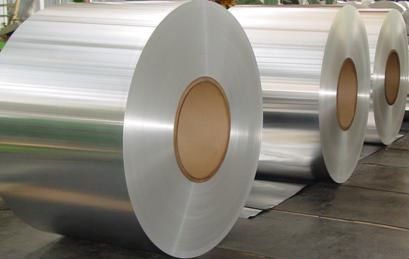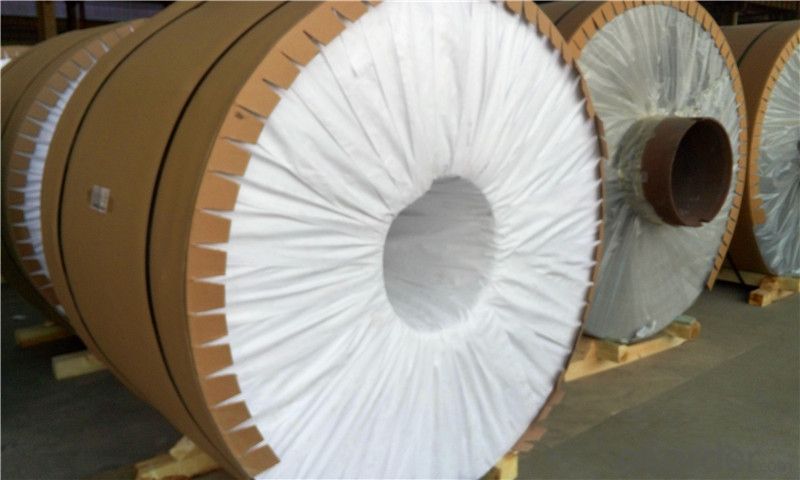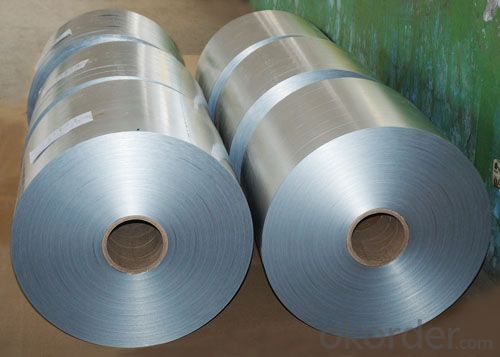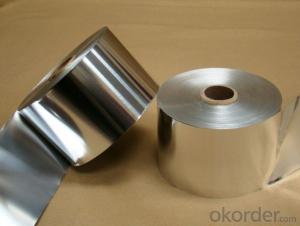5052 Marine Grade 20mm Thickness Aluminium Plate
- Loading Port:
- Shanghai
- Payment Terms:
- TT OR LC
- Min Order Qty:
- 5 m.t.
- Supply Capability:
- 5000 m.t./month
OKorder Service Pledge
Quality Product, Order Online Tracking, Timely Delivery
OKorder Financial Service
Credit Rating, Credit Services, Credit Purchasing
You Might Also Like
Item specifice
Grade:
1000 Series,7000 Series,5000 Series
Surface Treatment:
Anodized,Mill Finish,Brushed,Holographic Impression
Shape:
Angle,Flat,Rectangular
Temper:
O-H112,Soft
Application:
Decorations,Transportation Tools,Kitchen Use,Pharmaceutical
Thickness:
0.05-4.0mm
Width:
200mm---980mm
Outer Diameter:
450-600
Net Weight (kg):
2.5 ton
Packaging:
Wooden pallets
5052 Marine Grade 20mm Thickness Aluminium Plate
Packaging & Delivery
Product Specification | |
Grade | 1000 Series: 1050 1060 1100 3000 Series: 3003 3004 3105 5000 Series: 5052 5605,5083 6000 Series: 6061 6063 8000 Series: 8011 8021 8079 |
Thickness | 0.20-8.00mm |
Width | 2400mm max. |
Grade | 1000,3000,5000,6000,8000series |
Coil ID | 75mm, 150mm, 200mm, 300mm, 400mm, 508mm or negotiable |
Coil weight | 1000-5000kgs |
Coil OD | 1700mm max. |
Temper | O, H12, H14, H16, H111, H22 ,H24, H26, H28,T4, T6,etc. |
| Temper | |
| F | processing state |
| H | strain hardening state |
| O | annealing |
| T | heat treatment state |
| H112 | pure state of strain hardening, adjustment has been made to degree of strain hardening and annealing |
| T4 | solid solution treatment and natural efficiency to achieve sufficient stability condition |
| T5 | artificial aging condition of the reentry after high temperature thermal cooling |
| T6 | artificial aging state after solid solution treatment |
Chemical Composition | |||||||||
| Grade | Si | Fe | Cu | Mn | Mg | Cr | Ni | Zn | Al |
| 1050 | 0.25 | 0.4 | 0.05 | 0.05 | 0.05 | - | - | 0.05 | 99.5 |
| 1060 | 0.25 | 0.35 | 0.05 | 0.03 | 0.03 | - | - | 0.05 | 99.6 |
| 1070 | 0.2 | 0.25 | 0.04 | 0.03 | 0.03 | - | - | 0.04 | 99.7 |
| 1100 | Si+Fe:0.95 | 0.05-0.2 | 0.05 | - | - | 0.1 | - | 99 | |
| 1200 | Si+Fe:1.00 | 0.05 | 0.05 | - | - | 0.1 | 0.05 | 99 | |
| 1235 | Si+Fe:0.65 | 0.05 | 0.05 | 0.05 | - | 0.1 | 0.06 | 99.35 | |
| 3003 | 0.6 | 0.7 | 0.05-0.2 | 1.0-1.5 | - | - | - | 0.1 | remains |
| 3004 | 0.3 | 0.7 | 0.25 | 1.0-1.5 | 0.8-1.3 | - | - | 0.25 | remains |
| 3005 | 0.6 | 0.7 | 0.25 | 1.0-1.5 | 0.20-0.6 | 0.1 | - | 0.25 | remains |
| 3105 | 0.6 | 0.7 | 0.3 | 0.30-0.8 | 0.20-0.8 | 0.2 | - | 0.4 | remains |
| 3A21 | 0.6 | 0.7 | 0.2 | 1.0-1.6 | 0.05 | - | - | 0.1 | remains |
| 5005 | 0.3 | 0.7 | 0.2 | 0.2 | 0.50-1.1 | 0.1 | - | 0.25 | remains |
| 5052 | 0.25 | 0.4 | 0.1 | 0.1 | 2.2-2.8 | 0.15-0.35 | - | 0.1 | remains |
| 5083 | 0.4 | 0.4 | 0.1 | 0.40-1.0 | 4.0-4.9 | 0.05-0.25 | - | 0.25 | remains |
| 5154 | 0.25 | 0.4 | 0.1 | 0.1 | 3.1-3.9 | 0.15-0.35 | - | 0.2 | remains |
| 5182 | 0.2 | 0.35 | 0.15 | 0.20-0.50 | 4.0-5.0 | 0.1 | - | 0.25 | remains |
| 5251 | 0.4 | 0.5 | 0.15 | 0.1-0.5 | 1.7-2.4 | 0.15 | - | 0.15 | remains |
| 5754 | 0.4 | 0.4 | 0.1 | 0.5 | 2.6-3.6 | 0.3 | - | 0.2 | remains |
| 6061 | 0.40-0.8 | 0.7 | 0.15-0.40 | 0.15 | 0.8-1.2 | 0.04-0.35 | - | 0.25 | remains |
| 6063 | 0.20-0.6 | 0.35 | 0.1 | 0.1 | 0.45-0.9 | 0.1 | - | 0.1 | remains |
| 6082 | 0.7-1.3 | 0.5 | 0.1 | 0.40-1.0 | 0.6-1.2 | 0.25 | - | 0.2 | remains |
| 6A02 | 0.50-1.2 | 0.5 | 0.20-0.6 | Or Cr0.15-0.35 | 0.45-0.9 | - | - | 0.2 | remains |
| 8011 | 0.50-0.9 | 0.6-1.0 | 0.1 | 0.2 | 0.05 | 0.05 | - | 0.1 | remains |



- Q:Are aluminum coils suitable for architectural cladding?
- Architectural cladding can indeed utilize aluminum coils. Aluminum, a versatile and aesthetically pleasing material, is widely used in the construction industry due to its lightweight nature and durability. Aluminum coils can be easily shaped into various forms and sizes, making them perfect for architectural cladding applications. One of the notable advantages of using aluminum coils for cladding is their resistance to corrosion. Aluminum naturally develops a protective oxide layer, preventing rusting and deterioration over time. Consequently, aluminum proves to be a durable and low-maintenance option for architectural cladding. Moreover, aluminum coils offer a wide array of finishes and colors, providing greater design flexibility. Architects and designers can paint or coat them to match any architectural style or design concept, making aluminum coils a favored choice. Furthermore, aluminum is an environmentally friendly material. It is fully recyclable and has a significantly lower carbon footprint compared to cladding materials like steel or concrete. This makes aluminum coils a sustainable option for architectural projects. To sum up, aluminum coils are indeed suitable for architectural cladding due to their durability, corrosion resistance, design flexibility, and environmental benefits.
- Q:How do aluminum coils compare to galvanized steel coils in terms of longevity?
- Compared to galvanized steel coils, aluminum coils typically have a longer lifespan when it comes to longevity. Aluminum is naturally resistant to corrosion, meaning it is less prone to rust or deterioration over time. As a result, aluminum coils are widely chosen for outdoor purposes, including roofing, siding, and HVAC systems, as they can endure harsh weather conditions while maintaining their structural integrity. In contrast, galvanized steel coils are coils made of steel that are coated with a layer of zinc as a protective measure against corrosion. Although this zinc coating offers some degree of protection, it can eventually wear away, especially in areas with high humidity or exposure to saltwater. Once the zinc coating is compromised, the underlying steel becomes vulnerable to rust and corrosion, significantly diminishing the lifespan of galvanized steel coils. Consequently, if longevity is a primary concern, aluminum coils are typically a more resilient and enduring option compared to galvanized steel coils. Nevertheless, it is crucial to take into account other factors such as cost, specific application requirements, and maintenance needs before reaching a final decision.
- Q:Can aluminum coils be used in high-altitude environments?
- Yes, aluminum coils can be used in high-altitude environments. Aluminum is known for its lightweight and corrosion-resistant properties, which make it suitable for various applications, including those in high-altitude environments. Additionally, aluminum has a high strength-to-weight ratio, allowing it to withstand the challenges posed by high altitudes.
- Q:Can aluminum coils be used in the manufacturing of lighting fixtures?
- Yes, aluminum coils can be used in the manufacturing of lighting fixtures. Aluminum is a versatile and lightweight material that has excellent thermal conductivity properties, making it suitable for dissipating heat generated by the light source. Additionally, aluminum coils are easily moldable, allowing for the creation of intricate designs and shapes in lighting fixtures. The corrosion-resistant nature of aluminum also ensures the longevity and durability of the lighting fixture. Overall, aluminum coils are a popular choice in the manufacturing of lighting fixtures due to their numerous advantages.
- Q:Can aluminum coils be insulated?
- Yes, aluminum coils can be insulated. Insulation is commonly applied to aluminum coils in order to improve energy efficiency and prevent heat loss or gain. The insulation material is typically wrapped around the aluminum coil, forming a protective layer that helps to reduce thermal transfer. This insulation process helps to maintain the desired temperature inside the coil and prevents condensation, which can cause damage. Additionally, insulation can also improve the overall performance and lifespan of the aluminum coil system.
- Q:at what state is aluminum at room temperature?what are aluminums physical properties?what is aluminum obtained from?
- well if you took a look at the periodic table it would answer all you questions. its a metal...metal is a solid but can be a liquid when the temperatures are increased. and this page will tell u what its obtained from.
- Q:Are aluminum coils suitable for gutter systems?
- Yes, aluminum coils are suitable for gutter systems. Aluminum is a popular choice for gutter material due to its durability, lightweight nature, and resistance to rust and corrosion. It is also easy to work with and can be customized to fit various gutter sizes and shapes.
- Q:How do aluminum coils contribute to fire safety?
- Aluminum coils contribute to fire safety in various ways. First and foremost, aluminum is a non-combustible material, meaning it does not burn or support combustion. This makes it an excellent choice for applications where fire safety is paramount, such as in the construction industry. Aluminum coils are commonly used in the manufacturing of fire-resistant barriers and protective claddings. These barriers act as a shield, preventing the spread of flames and heat between different areas of a building. By containing the fire to its origin and preventing it from spreading, aluminum coils play a crucial role in limiting the damage caused by fires and ensuring the safety of occupants. Furthermore, aluminum coils are often used in the production of fire-resistant doors, windows, and curtain walls. These components are designed to withstand high temperatures and provide an effective barrier against the spread of fire and smoke. By using aluminum coils as the base material for these products, they can offer enhanced fire protection and help to prevent the rapid spread of flames in the event of a fire. In addition to being non-combustible, aluminum is also a highly conductive material. This property allows it to quickly dissipate heat, reducing the risk of ignition and minimizing the potential for fire accidents. Aluminum coils are often incorporated into heat exchange systems, such as HVAC units and refrigeration systems, where their thermal conductivity helps to regulate temperature and prevent overheating, thus reducing the risk of fire. Overall, aluminum coils contribute to fire safety by being non-combustible, acting as fire-resistant barriers, and being used in the production of fire-resistant doors and windows. Their ability to dissipate heat quickly also helps to minimize the risk of fire accidents. By utilizing aluminum coils in various fire safety applications, we can enhance the protection of buildings and ensure the safety of occupants in the event of a fire.
- Q:What are the different grades of aluminum used in coil production?
- The different grades of aluminum used in coil production typically include 1100, 3003, and 5052. These grades vary in terms of their composition and properties, allowing for specific applications and requirements in various industries.
- Q:What are the production processes of aluminum coil and what are the functions of various industrial furnaces in the production of aluminum? The more detailed, the better. Thank you! Points!
- General steps are as follows: melting - hot rolling - cold rolling - annealing – shearing – straightening – punching
1. Manufacturer Overview |
|
|---|---|
| Location | |
| Year Established | |
| Annual Output Value | |
| Main Markets | |
| Company Certifications | |
2. Manufacturer Certificates |
|
|---|---|
| a) Certification Name | |
| Range | |
| Reference | |
| Validity Period | |
3. Manufacturer Capability |
|
|---|---|
| a)Trade Capacity | |
| Nearest Port | |
| Export Percentage | |
| No.of Employees in Trade Department | |
| Language Spoken: | |
| b)Factory Information | |
| Factory Size: | |
| No. of Production Lines | |
| Contract Manufacturing | |
| Product Price Range | |
Send your message to us
5052 Marine Grade 20mm Thickness Aluminium Plate
- Loading Port:
- Shanghai
- Payment Terms:
- TT OR LC
- Min Order Qty:
- 5 m.t.
- Supply Capability:
- 5000 m.t./month
OKorder Service Pledge
Quality Product, Order Online Tracking, Timely Delivery
OKorder Financial Service
Credit Rating, Credit Services, Credit Purchasing
Similar products
New products
Hot products
Hot Searches
Related keywords




























